
De aandelenselecties van Warren Buffett zien er niet meer uit zoals vroeger.
De Berkshire Hathaway (BRK.B) aandelenportefeuille heeft de afgelopen jaren veel veranderingen doorgemaakt. Ten eerste heeft de investeringstak van Berkshire Hathaway de smaak te pakken gekregen voor groeispelen. Terwijl oude garde favorieten zoals American Express en Coca-Cola nog steeds rondhangen, hebben Buffett &Co. een glans gekregen op aandelen zoals Apple en Amazon.com, en zelfs minder bekende bedrijven zoals Snowflake en StoneCo.
Maar de Berkshire Hathaway-portefeuille heeft het afgelopen jaar ook verschillende kapsels ondergaan. Buffett heeft tientallen aandelen bijgesneden of gesneden toen de COVID-19-pandemie het investeringslandschap drastisch veranderde. Begin 2020 was hij eigenaar van verschillende luchtvaartmaatschappijen; nu heeft hij er geen. Banken waren azen onder Buffett-aandelen om 2020 te beginnen; Berkshire heeft het hele jaar door gedaan om ze naar de stoeprand te trappen.
Nou ... het is 2021 en "Uncle Warren" is niet gestopt met verkopen.
Buffett brak opnieuw de bezem uit in het derde kwartaal van het jaar, waarbij hij 10 posities snoeide of ronduit sneed. Ondertussen verving hij alleen de uitgaande aandelen door twee posities toe te voegen en twee nieuwe inzetten te initiëren. Dat blijkt uit de meest recente aanvraag van Form 13F, ingediend bij de Securities and Exchange Commission op 15 november.
Als u wilt weten welke aandelen volgens de legendarische belegger Warren Buffett zijn tijd en aandacht waard zijn, hoeft u niet verder te zoeken dan de aandelenportefeuille van Berkshire Hathaway. (En zoals altijd, onthoud:een paar van deze Buffett-aandelen zijn daadwerkelijk uitgekozen door portefeuillebeheerders Todd Combs en Ted Weschler.)
Lees verder terwijl we elke participatie onderzoeken om beleggers een beter inzicht te geven in de hele Berkshire Hathaway-portefeuille.

United Parcel Service (UPS, $ 211,52) is er nog steeds.
'S Werelds grootste pakketbezorgingsbedrijf blijft de kleinste positie onder de aandelen van Warren Buffett. Het hangt aan een zijden draadje, maar dat doet het al geruime tijd, meer dan 15 jaar zelfs.
Misschien is de reden dat oom Warren de aandelen niet heeft gedumpt, dat hij het niet eens meer opmerkt. Met minder dan 60.000 aandelen is dit een romppositie, restjes, een vreemd lot.
Het is zeker minder dan waarmee Buffett begon. UPS-aandelen werden in het eerste kwartaal van 2006 aan de Berkshire Hathaway-portefeuille toegevoegd, toen Buffett op dat moment 1,43 miljoen aandelen toevoegde ter waarde van ongeveer $ 113,5 miljoen. Dat komt neer op een gemiddelde prijs per aandeel van $79,38.
Maar UPS is nooit uitgegroeid tot een belangrijk onderdeel van Berkshire Hathaway's portefeuille, en Buffett heeft de positie in de loop der jaren zo verkleind dat het geen verrassing zou zijn als hij op enig moment uit het belang zou stappen. Hij is ook kenmerkend stil geweest over de inzet; er wordt geen melding gemaakt van United Parcel Service in het onmisbare Warren Buffett-archief van CNBC.
Het aandeel van UPS is al lang een teleurstelling, met een totaalrendement (prijs plus dividend) van 321% sinds 31 maart 2006, tegenover 398% voor de bredere markt. Het heeft in ieder geval beter gepresteerd sinds de COVID-dieptepunten, dus dat is een zalf voor Buffett &Co.
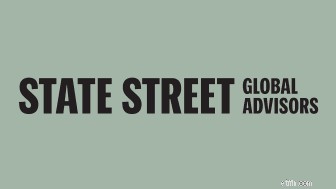
Het advies van Warren Buffett voor de meeste beleggers is altijd eenvoudig geweest:koop een S&P 500 Index-fonds en gooi, terwijl u toch bezig bent, een beetje geld in Treasuries om u te helpen goed te slapen in neergaande markten.
Maar jarenlang was het altijd 'indexeren voor u, maar niet voor mij'. De meest gevierde aandelenkiezer op de markt bleef doen wat hij altijd deed:aandelen kiezen en geen cent indexeren.
Buffett nam eindelijk zijn eigen medicijn in de laatste innings van 2019, maar kocht er niet één maar twee S&P 500-tracking exchange-traded funds (ETF's).
De eerste daarvan is Amerika's eerste ETF:de SPDR S&P 500 Trust ETF (SPY, $ 467,43). De SPY volgt de 500 componenten van de S&P 500 Index. Het doet dit voor een zeer redelijke 0,0945% per jaar, wat neerkomt op slechts $ 9,45 per jaar bij een investering van $ 10.000. Hoewel velen het gebruiken als een buy-and-hold-investering, maakt het hoge volume het ook een populair hulpmiddel voor handelaren.
Het is geweldig dat Buffett eindelijk zijn geld op zijn mond heeft gelegd. Maar als we eerlijk zijn, is het een vreemde positie voor een man die actief probeert de index te verslaan. Een ETF volgt immers slechts een index, en zal zelfs iets minder presteren als de kosten worden meegerekend.
Wie weet? Misschien wilde oom Warren gewoon zijn oude punt naar huis rijden.

Hoe serieus is Buffett over indexfondsen? Wel, hij bracht het onderwerp dit jaar opnieuw ter sprake tijdens de jaarlijkse Berkshire Hathaway-bijeenkomst en zei:"Ik raad het S&P 500-indexfonds aan en ik doe het voor een lange, lange tijd."
Misschien heeft hij daarom, naast SPY, ook de Vanguard S&P 500 ETF gekocht (VOO, $ 429,77) in 2019.
Voor het grootste deel is VOO vrijwel hetzelfde product als de SPY. Beide fondsen volgen de componenten van de S&P 500. Beide fondsen zijn zeer liquide. Het belangrijkste verschil is de prijs. De VOO heeft alleen een lichtere vergoeding (typisch voor Vanguard ETF's) van 0,03% per jaar, tegenover 0,0945% van de SPY.
Als je Berkshire's investeringen in de twee trackingfondsen bij elkaar optelt, begin je te beseffen dat die investeringen waarschijnlijk grotendeels symbolisch zijn. Elk aandeel vertegenwoordigt ongeveer een honderdste van een procent van Berkshire Hathaway's aandelenbezit.
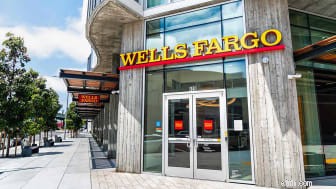
Warren Buffett heeft het gehad.
Wells Fargo (WFC, $ 51,08), dat sinds 2001 in de Berkshire-portefeuille zit, werd ooit beschouwd als een van de meest gekoesterde Buffett-aandelen. Maar het werd een last om de nek van het Orakel vanaf 2016, toen talloze schandalen naar de oppervlakte borrelden. De bank opende miljoenen valse rekeningen, wijzigde hypotheken zonder toestemming en bracht klanten in rekening voor autoverzekeringen die ze niet nodig hadden.
Het opruimproces is traag verlopen en heeft niet één maar twee . geclaimd CEO's. WFC-aandelen zijn ondertussen al geruime tijd achterop bij hun concurrenten.
Dus begon Buffett met verkopen, eerst een beetje, dan veel, tot het punt waarop Wells Fargo naar de kelder van de portefeuille is verbannen.
Berkshire heeft sinds het begin van 2018 in verschillende kwartalen WFC-aandelen verkocht. Gedurende verschillende kwartalen leken de meeste van die verkopen echter routinematig te zijn om de positie onder de wettelijke drempel van 10% voor banken te houden.
Toen kwam de ijzerzaag:
Als er een reddende genade is, is het dat hij de rest een paar kwartalen alleen heeft gelaten.
Desalniettemin is Warren binnen ongeveer een jaar van een van Wells Fargo's grootste aandeelhouders uitgegroeid tot eigenaar van een onbeduidend deel van de taart.

Een andere magere positie die nog een kwartaal overleefde, is Mondelez (MDLZ, $ 62,85), waarvan de merken Oreo-koekjes, Cadbury-chocolade, Halls-hoestdruppels, Trident-kauwgom en Triscuit-crackers omvatten.
In 2007 investeerde Buffett in wat toen bekend stond als Kraft Foods. Het verpakte voedingsbedrijf veranderde in 2012 zijn naam in Mondelez na het afstoten van zijn Noord-Amerikaanse levensmiddelenbedrijf, Kraft Foods Group genaamd en verhandeld onder de ticker KRFT. Kraft Foods Group fuseerde later met H.J. Heinz, in een deal uit 2015 met de steun van Buffett, om Kraft Heinz te vormen.
Een paar jaar later, in 2017, ontkrachtte Buffett de speculatie dat Kraft Heinz de wereldwijde snackgigant zou kopen.
Berkshire Hathaway behoudt een aanzienlijk belang in KHC (daarover later meer). MDLZ, niet zo veel. Berkshire behoort niet eens tot de 100 grootste aandeelhouders van Mondelez, met slechts 0,04% van de uitstaande MDLZ-aandelen, volgens gegevens van S&P Global Market Intelligence. En Mondelez is een nietsnut onder de Buffett-aandelen, die slechts 1/100ste van een procent van de totale waarde van de aandelenportefeuille van BRK.B vertegenwoordigt.
De kleine positie hield goed stand tijdens de baissemarkt, aangezien investeerders enkele basisconsumptiegoederen voor defensie toevoegden. Maar MDLZ heeft een bescheidener rendement opgeleverd sinds de aandelen weer op gang kwamen. Alles bij elkaar genomen zijn de aandelen van Mondelez slechts 10% gestegen sinds de markttop van 19 februari 2020, terwijl de S&P 500 een totaalrendement van meer dan 42% heeft behaald.
Niets te zien hier, mensen.

Warren Buffett is duidelijk dol op Dow Jones-aandelen, die in de gehele Berkshire Hathaway-portefeuille te vinden zijn. Maar Procter &Gamble (PG, $ 147,40) is een Dow-component die buiten de boot is gevallen als een investering in Berkshire Hathaway.
Buffett kwam in handen van P&G – maker van Tide-wasmiddel, Crest-tandpasta en Pampers-luiers – via de overname van scheermesmaker Gillette in 2005 door de holding. Destijds noemde Buffett, een grote aandeelhouder van Gillette, de verbintenis een 'droomdeal'. Procter &Gamble werd een van BRK.B's grootste aandelenposities.
De droom duurde niet lang. De Grote Recessie heeft het prijszettingsvermogen van de traditionele consumentengoederenbedrijven zoals P&G uitgehold. Het bedrijf begon aan een plan om 100 slecht presterende merken te schrappen. Het batterijbedrijf van Duracell stond toevallig op de lijst en Berkshire kocht het in 2014 in ruil voor PG-aandelen. Twee jaar later knipte Buffett wat er nog over was van het P&G-belang met 99%. Hij is sindsdien niet meer toegevoegd aan de positie.
Hoewel dit "Buffet-aandeel" bijna is uitgefaseerd, bleek P&G tijdens de bearmarkt en vroeg in het herstel een nuttig aandeel te hebben. Zoals veel defensieve aandelen hebben PG-aandelen het de afgelopen maanden echter grotendeels ondermaats gepresteerd.

In de loop der jaren heeft Berkshire verschillende feitelijke weddenschappen afgesloten op de legendarische pay-tv-mogul John Malone. De aanvankelijke oproep aan Buffett en zijn portefeuillemanagers is duidelijk te begrijpen:spel kent spel.
Liberty Latin America Klasse A-aandelen (LILA, $ 13,45) en Liberty Latin America Class C-aandelen (LILAK, $ 13,27) vertegenwoordigen een van die weddenschappen.
Liberty Latin America levert kabel-, breedband-, telefoon- en draadloze diensten in Chili, Puerto Rico, het Caribisch gebied en andere delen van Latijns-Amerika. Liberty Global (LBTYK), het multinationale telecommunicatiebedrijf waarin Berkshire ook een belang heeft, heeft in 2015 tracking-aandelen van zijn Latijns-Amerikaanse activiteiten uitgegeven en die activiteiten in 2018 volledig afgestoten.
Meer recentelijk, in november 2020, sloot Liberty Latin America de aankoop van bijna $ 2 miljard af van AT&T's (T) draadloze en vaste activa in Puerto Rico en de Amerikaanse Maagdeneilanden. En in augustus 2021 voltooide het de overname van de draadloze activiteiten van Telefónica (TEF) in Costa Rica.
Er is de laatste tijd niet veel actie geweest in LILA en LILAK. Buffett heeft de posities in 2021 volledig onaangeroerd gelaten.

Net als andere defensieve aandelen P&G, Johnson &Johnson (JNJ, $ 163,52) is uit de gratie geraakt bij Buffett en vertegenwoordigt niets meer dan een symbolisch bezit.
Geef de gediversifieerde gezondheidszorggigant de schuld van de krantenkoppen die de kop opsteken. J&J worstelde in 2010 en 2011 met productieproblemen en beschuldigingen van illegale marketingpraktijken. Buffett was kritisch over het bedrijf vanwege die blunders, evenals voor het gebruik van te veel eigen voorraad bij de overname in 2011 van apparaatmaker Synthes. Ontgoocheld over Johnson &Johnson, dumpte Berkshire het grootste deel van zijn belang in 2012.
Berkshires positie in JNJ bereikte in 2007 een hoogtepunt van 64,3 miljoen aandelen. Vandaag de dag bedraagt het aandelenbelang van de holding slechts 327.100 aandelen (ongeveer $ 53 miljoen), wat neerkomt op ongeveer een honderdste van de uitstaande aandelen.
Die positie heeft enorm ondermaats gepresteerd omdat de markt zich heeft hersteld van de COVID-dieptepunten; JNJ-aandelen hebben een totaalrendement van 54% opgeleverd, maar de S&P 500 is meer dan verdubbeld.

Warren Buffett nam een belang in Floor &Decor Holdings (FND, $ 130,00) in het derde kwartaal, wat heel goed past bij sommige van zijn andere investeringen in thuiswinkels. Floor &Decor verkoopt harde vloeren en aanverwante accessoires voornamelijk via 133 door het bedrijf beheerde magazijnen.
Buffett kocht op 30 september meer dan 816.000 aandelen in het bedrijf ter waarde van bijna $ 99 miljoen. Het is zeker een kleine positie, goed voor een magere 0,03% van de totale portefeuillewaarde van Berkshire Hathaway. Maar het past nog steeds goed bij enkele van Buffett's andere belangen en investeringen.
Berkshire Hathaway heeft bijvoorbeeld sinds het derde kwartaal van 2019 een positie opgebouwd in de retailer van huishoudelijke artikelen RH (RH) - voorheen bekend als Restoration Hardware - en hij maakte geen geheim van zijn liefde voor Nebraska Furniture, de volledige dochteronderneming van Berkshire Hathaway. Maart.
Floor &Decor lijkt daarmee een manier om de huizenmarkt te bespelen, zij het met een ietwat schuine, Buffett-achtige invalshoek.

Sirius XM (SIRI, $ 6,63) - een bedrijf dat ongeveer 100 miljoen luisteraars bereikt via zijn kernactiviteiten voor satellietradio en Pandora, dat het in 2018 heeft overgenomen - is een andere Malone-gerelateerde aandelenselectie.
Malone is voorzitter van Liberty Media, dat een enorm belang heeft in Sirius XM.
Zoals Kiplinger heeft opgemerkt, is het mogelijk dat alle investeringen van Berkshire in bedrijven die op de een of andere manier verbonden zijn met Malone's echt Byzantijnse bedrijfsstructuur, heel goed de verantwoordelijkheid kunnen zijn van een van Buffetts portefeuillebeheerders. Liberty Media was in zijn pre-Berkshire-tijd een grote positie van Ted Weschler's Peninsula Capital.
De affiniteit van Berkshire voor deze functie is de laatste tijd echter tanende.
Buffett kocht voor het eerst aandelen in SIRI in het laatste kwartaal van 2016. Berkshire loste een klein deel (1%) van zijn Sirius XM-positie in het derde kwartaal van 2017. Jaren later, in het eerste kwartaal van 2020, snoeide hij 3,9 miljoen aandelen, of 2% , en schakelde vervolgens in het tweede kwartaal van 2020 echt de strijd uit door meer dan 82 miljoen aandelen of 62% te schrappen.
Terwijl hij de inzet een paar kwartalen alleen liet, bracht hij in het eerste kwartaal van 2021 opnieuw de schaar tevoorschijn, waarbij hij 6,3 miljoen aandelen verloor, of nog eens 13%. Hij hield de positie echter stabiel in Q2 en Q3 2021.
Buffett blijft de op drie na grootste eigenaar van SIRI-aandelen met 1,1% van de aandelen. Dat is ruim minder dan het belang van 78% van Liberty Media.
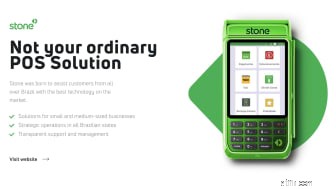
GROTE DIP IN PRIJS
Braziliaans financieel technologiebedrijf StoneCo (STNE, $ 31,31) levert software en hardware voor bedrijven om creditcard- en debetkaartbetalingen te vergemakkelijken. En het was een van de 'grootste' Warren Buffett-aandelen sinds Berkshire in het vierde kwartaal van 2018 de positie betrad.
In ieder geval tot voor kort.
STNE-aandelen zijn in 2020 meer dan verdubbeld om gemakkelijk de 18% rendementen van de S&P 500 te overtreffen, waardoor de winst van Buffett sinds eind 2018 op 355% komt. Maar het aandeel van StoneCo is sindsdien ijskoud geworden en verloor 64% van zijn waarde tot nu toe in 2021, en de aandelen presteren nu meer dan 30 punten slechter dan de S&P 500 sinds het begin van 2019.
Geen wonder dus dat Buffett in het eerste kwartaal van 2021 wat winst nam en ongeveer 3,5 miljoen aandelen of 24% van het belang verkocht.
Gezien de relatief kleine positie in STNE en het feit dat het een fintech-bedrijf is, zal het je niet verbazen dat de functie is geïnitieerd door Buffett-luitenant Todd Combs - ongetwijfeld met de zegen van het Orakel van Omaha.
Maar hoewel StoneCo niet noodzakelijkerwijs in de blauwdruk van Buffett-aandelen zit, past het toch goed bij Berkshire Hathaway's algemene optimistische houding ten aanzien van bedrijven die betalingen vergemakkelijken en verwerken. "Betalingen zijn wereldwijd een groot probleem", zei Warren Buffett op de aandeelhoudersvergadering van Berkshire in 2018.
En het bedrijf groeit nog steeds als kool. Het totale betalingsvolume (TPV) in 2020 steeg met 62,6% op jaarbasis tot 209,9 miljard Braziliaanse real en de inkomsten waren 28,9% hoger, tot 3,3 miljard Braziliaanse real.

Berkshire Hathaway heeft veel verzekeringsblootstelling in zijn kernactiviteiten, waaronder Geico, General Re, MLMIC Insurance en Berkshire Hathaway Specialty Insurance. Maar de sector is nooit een belangrijke factor geweest in zijn aandelenportefeuille. Inderdaad, het bedrijf dumpte begin 2020 wat er nog in zijn belang van Travellers (TRV) over was.
Het was dus enigszins een verrassing dat BRK.B niet alleen kocht in Marsh McLennan (MMC, $ 167.35) aan het einde van 2020, maar breidde zijn positie uit in het eerste kwartaal van 2021.
Berkshire nam in het vierde kwartaal van 2020 een aandeel van 4,2 miljoen aandelen in ter waarde van amper een half miljard dollar. Het was geen grote positie, met slechts 0,2% van de totale waarde van Berkshires aandelenbezit. Maar dankzij nog eens 1 miljoen aandelen die in het eerste kwartaal van 2021 werden gekocht, was het belang in slechts een paar maanden tijd met 23% gestegen.
Buffett is de laatste tijd echter van gedachten veranderd, waarbij de positie in het tweede kwartaal met 20% is verminderd en vervolgens met nog eens 34% in het derde kwartaal van 2021, waardoor er slechts 2,7 miljoen aandelen overblijven.
Aandelen in MMC, dat verschillende risico-, strategie- en adviesdiensten levert, zijn lange tijd achtergebleven op de markt. Misschien ziet Buffett onaangeboorde waarde. Het bedrijf keert ook een bescheiden dividend uit dat momenteel 1,3% oplevert.
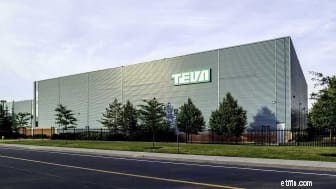
Berkshire Hathaway verhuisde naar Teva Pharmaceutical (TEVA, $ 9,44) in het vierde kwartaal van 2017, en het bedrijf zag er destijds uit als een klassiek Warren Buffett-aandeel.
De in Israël gevestigde medicijnfabrikant was op zijn zachtst gezegd uit de gratie. Een opgeblazen balans, massale ontslagen en het dreigende verstrijken van medicijnpatenten zorgden ervoor dat short sellers hun karbonades likten.
Tegen de tijd dat Buffett instapte, waren de Teva-aandelen ongeveer 70% gedaald ten opzichte van hun hoogtepunt medio 2015. Berkshire verdubbelde vervolgens zijn belang in Teva in het eerste kwartaal van 2018, toen aandelen er erg goedkoop uitzagen.
Het probleem is:ze zijn nog goedkoop.
TEVA-aandelen hebben sinds het begin van het tweede kwartaal van 2018 bijna 45% van hun waarde verloren. Ze worden momenteel verhandeld tegen minder dan vier keer de schattingen van analisten voor toekomstige inkomsten, wat een fractie is van de toekomstige K/W van de S&P 500.
Maar Berkshire heeft de positie ongeveer een jaar met rust gelaten. De meest recente stap was een kleine verlaging van 1% in het eerste kwartaal van 2020. En Buffett blijft de op drie na grootste aandeelhouders van Teva dankzij zijn belang van 3,9% in de farmaceutische naam.

Gezondheidszorg heeft doorgaans geen groot percentage van de activa van Berkshire Hathaway vertegenwoordigd, maar de houdstermaatschappij heeft meestal posities in verschillende namen van de sector. Dat is nog steeds het geval na de exits van BRK.B in Merck en Organon, aangezien het Orakel van Omaha heeft besloten om Royalty Pharma (RPRX, $ 41,70) in zijn stal met Buffett-aandelen.
Dat gezegd hebbende, RPRX is niet je gebruikelijke farmaceutische spel.
Royalty Pharma, zoals de naam al aangeeft, is gericht op het verwerven van biofarmaceutische royalty's. Het onderzoekt of ontwikkelt geen medicijnen - het helpt de bedrijven die dat wel doen kapitaal te verschaffen. Zoals het bedrijf uitlegt:
"We financieren innovatie in de biofarmaceutische industrie zowel direct als indirect - direct wanneer we samenwerken met bedrijven om klinische proeven in een laat stadium en de lancering van nieuwe producten mede te financieren in ruil voor toekomstige royalty's, en indirect wanneer we bestaande royalty's verwerven van de oorspronkelijke innovators. "
Door dat model heeft RPRX een stuk blockbuster-medicijnen gekregen, zoals AbbVie's Imbruvica, Biogen's (BIIB) Tysabri en Pfizer's (PFE) Xtandi.
Buffett gaf in het derde kwartaal $ 475 miljoen uit om een belang in RPRX te initiëren, waardoor hij onmiddellijk een top-10-aandeelhouder werd met 3,1% van alle aandelen. Maar het is nog steeds een relatief magere positie binnen de Berkshire Hathaway-portefeuille, met minder dan 0,2% van de aandelen.

Globe Life (GL, $94,58) – tot 2019 bekend als Torchmark – is een van de kleine verzekeringsgerelateerde belangen in de Berkshire Hathaway-portefeuille.
GL, een levens- en ziektekostenverzekeraar, is misschien een saai bedrijf, maar het is heel stilletjes een zeer goede aandelenkeuze geweest. Berkshire Hathaway bezit sinds begin 2001 aandelen in Globe Life/Torchmark. In die tijd heeft GL een totaalrendement van 566% gegenereerd, waarmee het de prestatie van 504% van de S&P 500, inclusief dividenden, overtrof.
BRK.B bezit 6,2% van de uitstaande aandelen van Globe Life, waarmee het de op twee na grootste aandeelhouder van het bedrijf is, na Vanguard en BlackRock (BLK).

Berkshire Hathaway heeft zijn blootstelling aan de communicatiedienstensector in het derde kwartaal van 2020 vergroot door een klein belang te verwerven in het draadloze communicatiebedrijf T-Mobile US (TMUS, $ 117,77).
Toen verdubbelde Buffett die weddenschap letterlijk tijdens het vierde kwartaal van 2020, waardoor zijn inzet met nog eens 2,8 miljoen aandelen of 117% toenam.
T-Mobile is zeker een veel aantrekkelijkere investering sinds het in april 2020 de fusie van $ 26 miljard met Sprint afrondde. De deal creëerde een echte Nr. 3 draadloos bedrijf waarvan het totale aantal abonnees zich op zijn minst in dezelfde marge bevindt als Verizon (VZ) en AT&T (T).
Aandelen hebben echter een ruw 2021 achter de rug, met een daling van 12% tegenover een totaalrendement van ongeveer 26% voor de bredere markt.
Het belang van 5,2 miljoen dollar en $ 670 miljoen vertegenwoordigt nu ongeveer een kwart procent van de waarde van de Berkshire Hathaway-portefeuille. Dat komt neer op een belang van 0,4% in het bedrijf, waarmee Buffett een van de 20 grootste aandeelhouders van het bedrijf is.
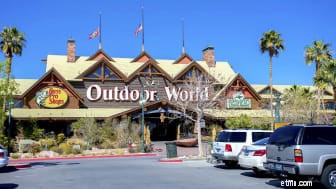
Berkshire's positie in Store Capital (STOR, $ 34,24), die het in de zomer van 2017 binnenkwam, was ongebruikelijk. Real Estate Investment Trusts (REIT's) - een manier om in onroerend goed te beleggen zonder de werkelijke activa te bezitten - zijn nooit groot geweest onder Buffett-aandelen.
Store investeert in eigendommen van één huurder, waaronder restaurantketens, supermarkten, drogisterijen en andere winkels, service- en distributiefaciliteiten. Dat wil zeggen, Store is een gok op fysieke detailhandel, waarvan wordt gedacht dat deze permanent achteruitgaat.
Buffett bespioneerde echter waarde - en hij bespioneerde het al geruime tijd. Christopher Volk, CEO van Store Capital, vertelde CNBC dat Buffett de REIT drie jaar bestudeerde voordat hij zijn functie innam.
Het Orakel van Omaha moet een vergelijkbare waarde hebben zien opkomen in de dip van februari-maart van het bedrijf, waardoor STOR-aandelen van piek tot dal met ongeveer 65% daalden. We zeggen dat omdat hij 5,8 miljoen aandelen heeft gekocht, of nog eens 31%, om zijn belang op 24,4 miljoen aandelen te brengen, met een opbrengst van 4,5% tegen lopende prijzen.
Goed nieuws voor Buffett:STOR-aandelen zijn sinds de bodem van maart met 124% gestegen en hebben sindsdien het totale rendement van 115% van de S&P 500 overtroffen.
BRK.B bezit nu 9,0% van de uitstaande aandelen en is daarmee de op twee na grootste aandeelhouder van Store Capital, na Vanguard en BlackRock.

Warren Buffett heeft een winnaar gevonden in RH (RH, $ 649,29), die veel lezers kennen als restauratiehardware.
Berkshire, dat via zijn dochteronderneming Nebraska Furniture Mart al in de woninginrichtingsdetailhandel is gepositioneerd, voegde meer bekendheid aan de ruimte toe met zijn toetreding tot RH in het derde kwartaal van 2019 en deed vervolgens een aanzienlijke toevoeging aan zijn belang om het jaar af te sluiten. Sindsdien heeft de holding haar positie verhoogd met 1% in het eerste kwartaal van 2021 en met 2% in het tweede kwartaal.
RH exploiteert 106 retail- en outletwinkels in de VS en Canada. Het is ook eigenaar van Waterworks, een high-end bad-en-keukenwinkel met 14 showrooms.
Terwijl fysieke retailers de afgelopen jaren enorm hebben geworsteld, mede dankzij de opkomst van e-commerce, heeft RH succes gevonden om de bovenlaag te bedienen. En dat succes ging door tijdens de COVID-pandemie toen Amerikanen, gedwongen om vanuit huis te werken, besloten te besteden aan het verbeteren van hun omgeving.
RH-aandelen zijn sinds 1 januari 2020 bijna verdrievoudigd, een stijging van 198% tegenover een totaalrendement van 49% voor de bredere markt. Aandelen doen het ook in 2021 de das om, een stijging van 42% tot 26% van de S&P 500.
Het is moeilijk te zeggen of dit een Oracle of Omaha-aankoop was, of een project van een van zijn luitenants, Ted Weschler of Todd Combs. Buffett was meestal mama op RH. Toch past de inzet in grote lijnen bij het wereldbeeld van Oracle. Buffett-aandelen zijn meestal weddenschappen op de groei van Amerika, en dat is precies wat een gok is op huisvesting en huisvestingsgerelateerde industrieën.
Buffett currently is the RH's third-largest investor by virtue of owning about 8.5% of all shares outstanding.

London-based Aon (AON, $300.44) offers a wide range of professional services, from insurance and reinsurance to pension administration and financial advising to health insurance. And it represented Buffett's lone new position in Q1 2021.
Like most insurance firms, you won't necessarily expect profits to grow in a perfectly straight line year after year. But revenues have improved without interruption over the past four years, and net income is up in three of the past five years.
That operational strength has led to superior returns against both the market and its peers. AON shares have provided a total return (price plus dividends) of 605% over the past decade, versus 354% for the S&P 500 and 302% for the SPDR S&P 500 Insurance ETF (KIE).
Berkshire hasn't exactly bet the farm on Aon. Even after adding 300,000 shares, or about 7%, the stake is still worth just $1.2 billion, or a little more than 0.4% of the equity portfolio's assets. Nonetheless, it's one of the few stocks Buffett &Co. have been bullish on amid a torrent of quarterly sales.

Among Warren Buffett stocks, banks are the most notable for getting the ax of late, but we should note that he's soured on several healthcare plays too.
Bristol Myers Squibb (BMY, $59.62) was one of several Big Pharma bets Warren Buffett during the third quarter of 2020. In the case of BMY, Berkshire took on almost 30 million shares worth $1.81 billion. Buffett grew even fonder of the company over the next few months. He tacked on another 3.4 million shares during Q4 2020, growing the position by 11%.
However, Buffett shed 2.3 million shares in the pharmaceutical giant during the first three months of 2021. In Q2, he dumped another 4.7 million shares, or 15%. And then in Q3, he trimmed yet another 16% or about 4.2 million shares.
BMY beefed up in a big way a year ago when it acquired pharmaceutical giant Celgene, and that likely was a big part of the initial attraction to this stock. The deal brought in a pair of blockbuster multiple myeloma treatments:Pomalyst and Revlimid, the latter of which also treats mantle cell lymphoma and myelodysplastic syndromes.
That's par for the course. Een lange staat van dienst van succesvolle overnames heeft ervoor gezorgd dat de pijplijn van het farmaceutisch bedrijf door de jaren heen gevuld is met medicijnen van grote namen. Tot de bekendere namen van tegenwoordig behoren Coumadin, een bloedverdunner, en Glucophage, voor diabetes type 2.
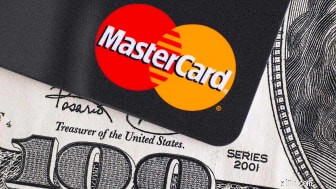
Berkshire Hathaway might own Mastercard (MA, $361.36), but Warren Buffett has given credit where credit is due:namely, to his portfolio managers Combs and Weschler.
Buffett's biggest regret is not pulling the trigger sooner.
"I could have bought them as well, and looking back, I should have," Buffett said about Visa and Mastercard in 2018, referring to his own investment in American Express.
Mastercard, which boasts 974 million cards in use across the world, is one of several payments processors that count themselves as Buffett stocks. That said, the position is a little lighter of late. Berkshire reduced its position by 6%, or 276,108 shares, during the third quarter, bringing MA's overall weight down to 0.5% of the equity portfolio.
Of course, Mastercard shares have returned some 1,430%, including dividends, since March 31, 2011 – several times better than the S&P 500 in that time – so it's hard to begrudge Warren Buffett a little profit-taking.
Besides:Since then, he has left well enough alone.

Biopharmaceutical firm AbbVie (ABBV, $116.84) is yet another of Berkshire's big pharma adds from Q3 2020, but it's also another healthcare stock that Buffett has been distancing himself from.
AbbVie is best known for blockbuster drugs such as Humira and Imbruvica, but analysts are also optimistic about the potential for Rinvoq and Skyrizi, which treat rheumatoid arthritis and plaque psoriasis.
And let's not forget that ABBV is a big hit with long-term dividend investors.
The pharmaceutical company is a Dividend Aristocrat, by virtue of having raised its annual dividend every year for half a century. Even better, its current yield is one of the highest in the S&P 500, and the company has raised the payout at an 18% average annual rate over the past five years. ABBV's dividend yield of 4.8% is several times better than the S&P 500 average of about 1.3%.
Most recently, however, Berkshire Hathaway has slimmed its position. The holding company sliced 29% off its AbbVie stake in Q3, unloading 6.1 million shares. That follows a reduction of 10%, or 2.3 million shares, in Q2, as well as a 10% cut to the position in Q1. AbbVie now accounts for 0.5% of Berkshire's equity portfolio, down from 0.8% at the end of Q1.
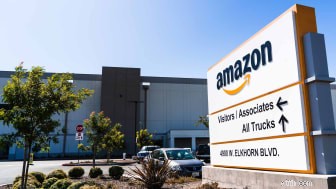
Amazon.com (AMZN, $3,545.68) has been a winner for Warren Buffett for most of the time since he first bit into the e-commerce giant in early 2019. However, like other AMZN shareholders, Berkshire is putting up with a rare bout of underperformance.
The holding company disclosed its 483,300-share position after the first quarter of 2019, then added another 54,000 shares the next quarter. AMZN shares are up 87% since the end of Q2 2019, versus 66% returns for the broader market.
That said, Amazon stock is up just 9% in 2021 versus 26% total returns for the S&P 500.
Dat is oke. If Buffett really feels like it, he can deflect the blame to one of his lieutenants. Even before Berkshire Hathaway submitted its Q1 2019 regulatory filing with the Securities and Exchange Commission, Buffett told CNBC:"One of the fellows in the office that manage money ... bought some Amazon, so it will show up (when that file is submitted)."
That said, Buffett has long been an admirer of Amazon CEO Jeff Bezos, he admitted in an interview. He also copped to wishing he had bought the stock sooner.
"Yeah, I've been a fan, and I've been an idiot for not buying (AMZN shares)," Buffett told CNBC.
Berkshire holds an insignificant 0.1% of Amazon's shares outstanding to barely keep it within the top 100 shareholders. Interestingly, Buffett marginally reduced the position by 4,000 shares in Q1 2020, but he hasn't touched the stake since.

Warren Buffett made quite the splash in fall 2020 when he finally dove head-first into the Snowflake (SNOW, $393.70) initial public offering (IPO).
The chairman and CEO of Berkshire Hathaway, for the record, has never been a fan of IPOs. He's said so, on the record, and has notably turned up his nose at some of the most heavily hyped stock market debuts.
But that didn't stop him from being involved when Snowflake, a cloud infrastructure unicorn, hit the public markets with a blockbuster IPO.
Snowflake is a cloud-data warehousing company that plays in a roughly $55 billion annual market – a market that's expanding. The firm boasts nearly 5,000 customers, 116 of which are each responsible for generating around $1 million in revenues within a 12-month period.
Snowflake is generating a lot of hype because it offers a way for companies to run their software on various cloud platforms, be they provided by Amazon.com, Microsoft (MSFT) or Google parent Alphabet (GOOGL), to name just three. And the stock is heating up after a weak start to the year, outperforming the S&P 500 37%-26%.

Visa (V, $212.30) operates the world's largest payments network, and thus is well-positioned to benefit from the growth of cashless transactions and digital mobile payments. Like Mastercard, Visa was the idea of lieutenants Todd Combs and/or Ted Weschler (Buffett won't tell). Also like Mastercard, Buffett wishes Berkshire had bought more.
And like Mastercard, Buffett's Visa position got a little smaller in Q3 2021. The stake in V was nipped by 4%, or 425,000 shares.
Berkshire Hathaway first bought Visa in the third quarter of 2011, and it has proven to be a mammoth winner. Including dividends, Visa has delivered a whopping total return of 964%, well more than double the S&P 500's 407% total return in that time. Visa also is a dividend-growth machine, ramping up its payout by 127% over the past five years alone.
"If I had been as smart as Ted or Todd, I would have (bought Visa)," Buffett told shareholders at the 2018 annual meeting.
Visa accounts for a modest but not insignificant holding at 0.7% of Buffett's portfolio. Meanwhile, Berkshire's half-percent stake in Visa doesn't even put it among the top 25 investors.
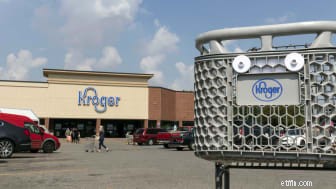
Kroger (KR, $42.66), is quickly becoming one of the most favored among Buffett's stocks, with the Oracle topping up his position by more than a fifth during the second quarter of 2021 after adding a huge chunk in Q1 too.
Berkshire Hathaway turned a few heads during the fourth quarter of 2019, when it initiated its 18.9 million-share position in Kroger. But given what was to come, it now looks like a savvy pick.
After all, the massive supermarket chain treated shareholders well during the worst of the pandemic and has continued to outperform in 2021. Indeed, shares are up by nearly 37% year-to-date with dividends included.
Kroger operates roughly 2,750 retail food stores operating under such banners as Dillons, Ralphs, Harris Teeter and its namesake brand, as well as 1,585 gas stations and even 170 jewelry stores under banners including Fred Meyer Jewelers and Littman Jewelers.
And Buffett is extremely interested in owning more and more of KR.
BRK.B added 10.7 million shares, or 21%, to his Kroger position in Q2. That followed the purchase of 17.5 million shares – a 52% increase in the position – during Q1.
With nearly 62 million shares total, Berkshire Hathaway is the third-largest owner of Kroger shares, with its 8.3% interest coming behind only BlackRock (10.2%) and Vanguard (9.4%).
It's only a middle-of-the-pack position at just 0.8% of Berkshire's equity assets. But the old-economy value play is a natural Buffett stock, right line line with the Oracle's traditional interests.

Berkshire bought Verisign (VRSN, $239.21) – an internet infrastructure service company that quite literally keeps the world connected online and acts as a domain registry for the .com, .net and other top-level domains – during a dip in the final quarter of 2012.
The company's dominance of the space exemplifies Buffett's love of deep moats, and the stake has paid off well. VRSN hasn't done well in the past year, up just 21% versus the S&P 500's 32%. But it has raced ahead by 516% since the start of 2013, which is well ahead of the S&P 500's 291% total return.
VRSN also is a teachable example of how stocks aren't good or bad in a bubble. One investor's brilliant purchase often is, depending on timing, another investor's biggest failure.
Stanley Druckenmiller, a famed former hedge fund manager, didn't have nearly as much luck with Verisign. Druckenmiller made a $200 million short on tech stocks in early 1999 while investing for George Soros' Quantum Fund, but lost $600 million in the trade. He then tried to win it back via a big $6 billion buy-in of tech stocks including Verisign ... but he lost $3 billion in six weeks as VRSN and several other recent purchases flopped, making it one of the "smart money's" worst stock calls of all time.
Berkshire Hathaway currently is the largest institutional investor in VRSN shares. It owns a little less than 13 million shares, giving it 11.4% control in the company.

Chevron (CVX, $116.82) is the only energy stock left in the Dow Jones Industrial Average after Exxon Mobil (XOM) was removed in 2020. It's also the sector's sole representative among Warren Buffett's stocks.
And Buffett can't seem to make up his mind about whether he likes or loathes CVX.
Berkshire Hathaway initiated a position of more than 48 million shares in the fourth quarter of 2020 valued at $4.1 billion. Although energy prices weren't expected to make huge moves 2021 after a considerable rebound in late 2020, the outlook for oil and gas was much improved and expected to get better as the global economy recovered.
Chevron specifically was well positioned, as it took advantage of the worst of the industry's woes in July 2020 by acquiring Noble Energy in a $5 billion all-stock transaction. The company's scale, asset quality and reserves make it one of the healthiest players in an industry where a lot of players are on injured reserve.
Also noteworthy is a 5%-plus yield at current prices. And that stands out all the more given that a slew of oil and gas firms had to slash or suspend their dividends in 2020. Chevron, meanwhile, has raised its quarterly payout for 34 consecutive years, including a 4% improvement announced in April to $1.34 per share.
And yet, Buffett reversed course in Q1 2021. In addition to booting Suncor Energy (SU) from the portfolio, Berkshire jettisoned a little more than half of its CVX position, unloading 24.8 million shares. He followed that up by dropping another 550,000 or so shares, or 2%, in Q2, to bring the position down to 23.1 million shares.
But Buffett flipped the script again in Q3, adding 28.7 million shares, or 24%, to his position.
The stake isn't nothing – CVX makes up nearly 1% of the Berkshire portfolio and is still a top-15 position. Meanwhile, at 1.5% of Chevron shares, Berkshire is the firm's sixth-largest investor.
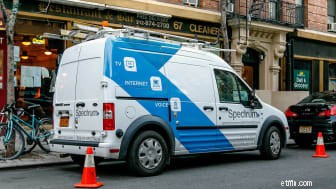
Charter Communications (CHTR, $692.91) markets cable TV, internet, telephone and other services under the Spectrum brand, which is America's second-largest cable operator behind Comcast (CMCSA). It greatly expanded its reach in 2016 when it acquired Time Warner Cable and sister company Bright House Networks.
And it's also yet another Buffett stock with a John Malone connection – albeit a small one now. Malone served on the telecom and media company's board of directors from 2013 until 2018, when he stepped down to concentrate his focus on a smaller group of companies. (He does remain a director emeritus, however.)
Buffett entered CHTR in the second quarter of 2014, but he has seemingly lost his love for the telecom company in recent years. His position has been trimmed down from 9.4 million shares in early 2017 to just 4.2 million shares as of Berkshire's most recent 13F, including a million-share reduction (or 19%) in Q3 2021.
Charter remains a decent position in the Berkshire Hathaway portfolio, at a little more than 1% of its equity assets.

Berkshire technically has three different investments in satellite-radio leader Sirius XM Holdings (SIRI). Not only does it hold a slug of SIRI shares – it also has positions via two different tracking stocks:Liberty Sirius XM Group Series A (LSXMA, $55.74) and Liberty Sirius XM Group Series C (LSXMK) tracking stock.
Liberty Media has for years held a large stake in Sirius XM Holdings. But in 2015, the company actually recapitalized, offering (among other things) several tracking stocks that allowed investors to participate in the performance of Liberty's Sirius XM investment directly rather than get it piecemeal through Liberty Media itself.
While that stake has largely been left alone over the past few quarters, Buffett decided to amplify his Sirius bet by tacking on another 20 million or so shares of LSXMA, or a 35% bump from the second quarter of 2021.
Berkshire is the largest institutional shareholder in each of the tracking stocks, holding 15.3% of Liberty Sirius XM's C shares and 19.2% of the A shares.
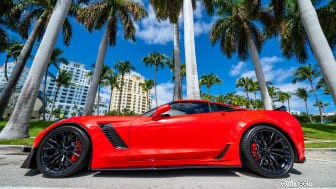
Warren Buffett first took a stake in General Motors (GM, $62.97) in early 2012. And over the past few years, he became even more bullish on the world's fourth-largest auto manufacturer by production, upping Berkshire Hathaway's holdings in 2018, 2019 and as recently as Q3 2020.
But lately, Buffett has started to distance himself.
Berkshire reduced its ownership in the car company by another 10% in Q2, or 7 million shares. That follows cuts of 5.5 million shares (7.6%) in the first three months of 2021, and 7.5 million shares (9.0%) during the final quarter of 2020.
General Motors has always looked like a classic Buffett value bet. After all, there are fewer American brands more iconic than GM. He also has sung the praises of CEO Mary Barra on several occasions. And the stock perennially trades at crazy-cheap multiples of expected earnings.
But with shares up nearly 260% since the COVID bottom, maybe it was time to take a little more off the top of a profitable investment – even if analysts still like the valuation and potential for resumption of income.
"On valuation, GM shares appear favorably valued based on most standard valuation metrics," writes Argus Research analyst Bill Selesky, who rates GM at Buy. "We also expect the company to soon reinstate its dividend."
Then there's the matter of allocation. Thanks to GM stock’s strong price performance, it still accounts for almost 1.1% of Berkshire Hathaway's total equity portfolio, down from 1.4% before Buffett's most recent trimming.

Bank of New York Mellon (BK, $59.91) truly stands apart from the back.
Warren Buffett has been an admirer of BNY Mellon for some time, and despite his dwindling love for banks, he has largely left his BK stake alone. He did trim the position a little in Q2 2020, but that's nothing compared to the heavy-handed haircuts that Berkshire's other bank holdings have suffered over the past few quarters.
Bank of New York Mellon is een depotbank die activa aanhoudt voor institutionele klanten en back-end boekhouddiensten levert. Its roots actually go all the way back to 1784, when Bank of New York was founded by a group including Alexander Hamilton and Aaron Burr. Today, BK is the nation's ninth-largest bank by assets, according to data from the Federal Reserve.
Berkshire Hathaway first took a position in BK back during Q3 2010, when it paid an estimated average price of $43.90. Since then, Berkshire Hathaway has become the bank's largest investor at 8.4% of shares. (Vanguard is No. 2 at 8.0%.)

DaVita (DVA, $106.47) was a largely undisturbed holding in the Berkshire Hathaway equity portfolio, at least up until in 2020. Then Buffett snipped 1% of his stake in the kidney care provider and dialysis center operator in Q1 2020. He cut it by another 5% in Q3.
But Buffett has left the position alone in 2021.
DaVita serves patients via more than 3,000 dialysis centers in the U.S. and nine other countries. Aging baby boomers and a graying population in many developed markets should provide a strong, secular tailwind.
Berkshire disclosed its initial position in DaVita during 2012's first quarter. Gezien het feit dat DVA in zijn pre-Berkshire-tijd een grote positie van Ted Weschler's Peninsula Capital was, was het niet onredelijk om aan te nemen dat het zijn keuze was. Weschler confirmed as much in 2014.
DaVita's shares have been a disappointment, however. DVA has underperformed the S&P 500 by roughly 167 percentage points since Q1 2012, including a 9% loss in 2021.
For now, Buffett is DaVita's largest shareholder by a country mile. Its stake of 36.1 million shares represents a little more than a third of the company's shares outstanding. And DVA remains a top-10 holding in the Berkshire Hathaway equity portfolio.

U.S. Bancorp (USB, $60.46) is the nation's fifth-largest bank by assets and America's biggest regional bank. It'a also one of the oldest Buffett stocks in the Berkshire Hathaway portfolio; the Oracle of Omaha initiated his position in the first quarter of 2006.
Buffett is notoriously tight-lipped about U.S. Bancorp and, at least historically speaking, has rarely touched the position. But he clipped it by another 1% in Q3, or by 2.5 million shares, following trimmings of 0.6% and 1.1% in Q2 and Q1, respectively.
Scraping just a bit off the USB stake stands in stark contrast to what Buffett has done with so many of Berkshire's other bank stocks, however. Mostly, he's taken a hatchet to them. And it's not like the regional lender's returns have justified holding on when Buffett has abandoned so many of its peers.
True, USB's total return beats the broader market by 6.6 percentage points so far in 2021, but it lags considerably over the past three-, five-, 10- and 15-year periods.
U.S. Bancorp shareholders no doubt appreciate Berkshire's vote of confidence. The holding company's 8.5% stake makes it the largest institutional shareholder, ahead of Vanguard (7.3%) and BlackRock (6.3%).
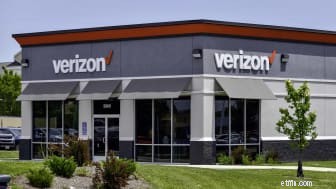
Verizon (VZ, $52.40), the only telecommunications company in the Dow Jones Industrial Average, is a beloved staple of long-term dividend investors everywhere. That's why it looks so at home in Berkshire Hathaway's portfolio.
And Buffett is warming to it.
Berkshire and Buffett initiated a brand-new stake in VZ in Q4 2020, picking up almost 146.7 million shares valued at $8.69 billion. In one fell swoop, the telco accounted for a sizable 3.2% of Berkshire's total equity portfolio value.
That position got a little bigger in Q1 2021, as Warren Buffett added more than 12 million shares, improving the stake by 8%. VZ's percentage of assets has slipped a bit, but still remains a hefty 2.9% weighting. Berkshire also remains the fourth-largest owner of VZ shares at 3.8%, behind institutional investors Vanguard (7.9%), BlackRock (7.0%) and State Street Global Advisors (4.0%).
Bulls like Verizon for both its growth prospects in the era of 5G networking, its defensive characteristics and the reliable income stream it delivers to investors.
"With a safe dividend yield and low leverage, we believe the market favors Verizon's 5G strategy and simpler story," say Raymond James equity research analysts. "Whether we are in an expansion or a contraction, consumers' internet and mobile plans may be the last thing they're willing to give up when times get tough."

Moody's (MCO, $390.78) is a business and financial services firm best known for its Moody's Investors Service credit rating arm – one of the three major American business credit ratings agencies alongside Standard &Poor's and Fitch Ratings. It also offers financial analysis technology via Moody's Analytics.
MCO is a longtime, significant holding in the Berkshire Hathaway portfolio – and an ironic one to boot.
"Uncle Warren" first dipped his toe in during the first quarter of 2001, and he has been content with his investment of late, leaving his 24.7 million-share stake unchanged over the past couple of years.
The funny thing about Berkshire's holding in Moody's is that Buffett said back in 2010 that "Our job is to rate credit ourselves. We do not outsource that to ratings agencies." Yet Berkshire Hathaway is the largest institutional holder of MCO, owning 13.2% of the financial firm. (Vanguard is a distant second at 7.2%.)
The holding is meaningful on Berkshire's end, too. At nearly 3% of assets, Moody's is one of the top 10 Buffett stocks.
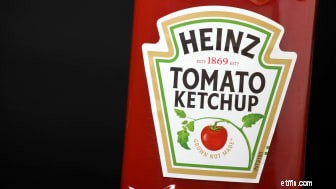
Warren Buffett was one of the driving forces behind the 2015 merger of packaged-food giant Kraft and ketchup purveyor Heinz to create Kraft Heinz (KHC, $37.62). It's Berkshire's fifth-largest stock investment with a market value of nearly $12 billion.
But it has been a dog, and Buffett likely still regrets his participation in what was one of his biggest deals of the past decade.
Berkshire Hathaway recorded a $3 billion non-cash loss from an impairment of intangible assets in 2018, "arising almost entirely from our equity interest in Kraft Heinz," Buffett wrote in his 2019 letter to shareholders. Begin 2019 schreef KHC de waarde van zijn merken af met bijna $ 15 miljard. In 2020, Fitch downgraded the company's debt to junk status. Its second-quarter earnings beat expectations, but Kraft still had to record yet another $2.9 billion in impairments.
Kraft's operational performance has at least improved since then, but its shares have gone back to lagging the broader market. KHC still has a lot of catching-up to do to shed its "dud" status in the Berkshire Hathaway equity portfolio.
"I was wrong (about KHC)," Buffett flatly admitted on CNBC in 2019. Buffett says he overpaid, and it's difficult to disagree. Even including dividends, Kraft's shares are still down more than 30% since Sept. 30, 2015.
Berkshire Hathaway remains the company's second-largest shareholder with a 26.6% stake. Private investment firm 3G Capital – who teamed up with Berkshire in 2013 to purchase H.J. Heinz – is tops at 44.3%.

Buffett, an unabashed fan of Cherry Coke, started investing in Coca-Cola (KO, $56.62) stock soon after the stock market crash of 1987. In his 1988 letter to Berkshire shareholders, Buffett said he expected to hold on to the stock "for a long time."
Three decades later, he has proven true to his word. Berkshire is KO's largest shareholder with 9.3% of its shares outstanding, and Coca-Cola remains among the most iconic of Buffett stocks.
Coca-Cola made a brief appearance as a component of the Dow Jones Industrial Average in the 1930s. Shares were added back to the Dow in 1987, and they've remained a stalwart member ever since.
While Coca-Cola's stock performance hasn't impressed – its 128% total return over the past decade is well behind the S&P 500's 354% return – it has been an income investor's dream. The beverage maker has increased its dividend annually for 59 years.

American Express (AXP, $183.13) continues to endure as one of Warren Buffett's favorite investments.
Buffett likes to say this his preferred holding period is "forever," and AmEx is one of the premier examples. Berkshire entered its initial stake in the credit card company in 1963, when a struggling AmEx badly needed capital. Buffett obliged, getting favorable terms on his investment. He has played the role of white knight many times over the years, including during the 2008 financial crisis, as a means to get stakes in good companies at a discount. (Think:Goldman Sachs and Bank of America.)
No one would've been surprised if Buffett had trimmed his AXP position sometime during the course of 2020. After all, Berkshire dumped financial stocks all year, and he even trimmed his stakes in payments processors during Q2.
American Express is both . And yet the position remained fully intact across the year.
Berkshire Hathaway, which owns 19.1% of American Express' shares outstanding, is by far the company's largest shareholder. No. 2 BlackRock owns 6.0%.
Buffett praised the power of AmEx's brand at Berkshire's 2019 annual meeting. "It's a fantastic story, and I'm glad we own 18% of it," he said. Of course he's glad: A roughly 1,630% total return over the past quarter-century would make most investors glow.
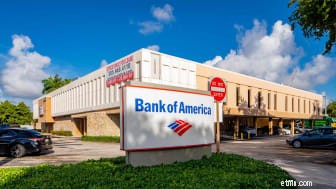
Buffett spent most of 2020 hacking and slashing at his various bank-stock holdings. But he remained as committed as ever to Bank of America (BAC, $47.05).
Buffett's interest in BAC dates back to 2011, when he swooped in to shore up the firm's finances in the wake of the Great Recession. In exchange for investing $5 billion in the firm, Berkshire received preferred stock yielding 6% and warrants giving Berkshire the right to purchase BofA common stock at a steep discount. (Het Orakel van Omaha oefende die warrants in 2017 uit, wat een winst van $12 miljard opleverde.)
Warren Buffett let go of 2.2 million BAC shares in Q4 2019, but that represented a mere 0.2% reduction. And while he cut heavily into various bank holdings in 2020, he actually added to Berkshire's already large position in Q3 of that year by snapping up more than 85 million shares.
The stake in BAC, worth more than $41 billion, accounts for 14.6% of the holding company's total portfolio value. Meanwhile, Berkshire is Bank of America's largest shareholder, at 12.0% of its shares outstanding.

Warren Buffett absolutely adores Apple (AAPL, $150.00), but even he decided to take a little bite out of BRK.B's stake at the end of last year.
Berkshire Hathaway sold off 57.2 million shares, or 6% of its AAPL stake, during the final quarter of 2020. But that likely had little to do with a lack of faith in the iPhone maker.
Call it a hunch.
"I don’t think of Apple as a stock," Buffett has said about Apple. "I think of it as our third business."
It might as well be. Even after its Q4 share sales, the tech giant still represents more than 40% of assets in the Berkshire Hathaway equity portfolio. And Berkshire remains Apple's third largest investor with an 887 million-share stake representing about 5.4% of all shares outstanding. Only Vanguard and BlackRock – giants of the passively managed index fund universe – hold more Apple stock.
The Oracle of Omaha has only occasionally dabbled in technology stocks. But he bought Apple with two fists, and he's more than happy to discuss his ardor for AAPL. As he has said more than once on CNBC, he loves the power of Apple's brand and its ecosystem of products (such as the iPhone and iPad) and services (such as Apple Pay and iTunes).
"It's probably the best business I know in the world," Buffett said a year ago. "And that is a bigger commitment that we have in any business except insurance and the railroad."
It's likely that Buffett was merely taking profits on what has been an exceptionally fruitful investment. AAPL shares have returned 494% since the end of Q1 2016, when Berkshire initiated its stake. That's more than three times better than the broader market.
17 aandelen die Warren Buffett net heeft gekocht, ingekort of gedumpt
5 Warren Buffett-aandelen waar hij waarschijnlijk voor de lange termijn in zit
7 aandelen die Warren Buffett koopt of verkoopt
De 10 goedkoopste Warren Buffett-aandelen
De 9 best renderende Warren Buffett dividendaandelen
5 aandelen die Warren Buffett verkoopt (en 2 nieuwe aandelen)
10 van de goedkoopste Warren Buffett-aandelen